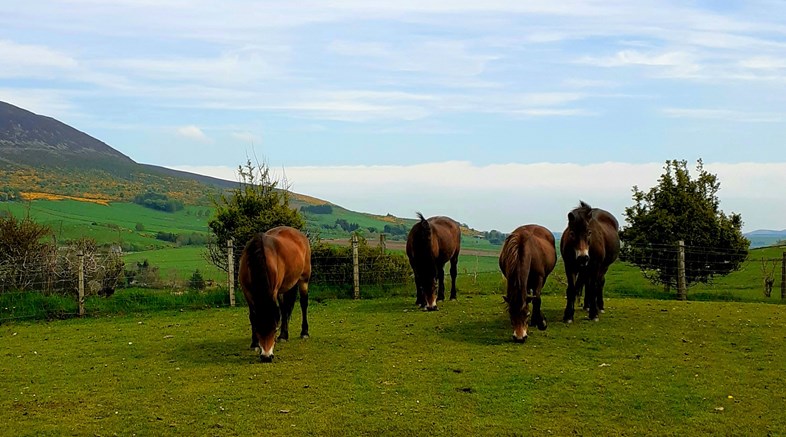Weight management is key to wellbeing of native ponies

Weight management practices can help reduce the risk of laminitis in native ponies
Native ponies are at particular risk of obesity and insulin dysregulation (ID), which is a key risk factor for laminitis. However, certain management practices can help reduce the risk of laminitis and recent research has explored how commonly used some of these are in Scotland.
In this new study, researchers from SRUC, together with the Waltham Petcare Science Institute Equine Studies Group and the Rowett Institute (University of Aberdeen), compared the responses of 571 native pony owners in an online survey.
The survey asked owners about their equestrian background, which potential weight management practices they undertook, and their confidence in different aspects of native pony care. This included how confident they felt in their ability to identify obesity, which can be common in native ponies.
They found that while owners with more than 20 years’ experience of caring for native ponies had confidence in identifying certain conditions, including obesity and managing their animals, this did not extend to them adopting common weight management strategies that could help prevent obesity in the first place.
Conversely, respondents who currently managed ponies with, or at risk from, obesity, laminitis, or equine metabolic syndrome, were more likely to use weight management practices to reduce their animal’s risk of obesity and help promote metabolic health.
The most commonly used weight management approach was monitoring body condition, with 92 per cent doing so either daily, weekly or monthly. However, more than half (52 per cent) did this via a visual assessment rather than using more standardised body condition scoring or measurement-based methods.
Only 13 per cent of owners undertook a nutritional analysis of preserved forage. Analysing the water-soluble carbohydrate content allows owners to make an informed choice when selecting a forage that is more suitable for their pony’s dietary requirements.
Lead researcher Ashley Ward, a PhD student with SRUC and the University of Aberdeen, said: “This research shows that experience in the management of ponies doesn’t necessarily mean that owners are more likely to undertake a variety of weight management approaches that could be beneficial to their pony’s health, wellbeing and longevity.
“It highlights a variety of weight management approaches that could be promoted among the native pony-owning community to improve practices that help safeguard ponies against obesity, which will in turn lower the risk of conditions such as ID and laminitis.
“It will also provide practising veterinarians with an overview of where they can promote good practice in their native pony-owning clients.”
The study was funded by the Scottish Funding Council Research Excellence Grant (REG), and the Waltham Petcare Science Institute, and published in PlosOne.
Learn more about postgraduate research opportunities at SRUC on our postgraduate research opportunities page.
Posted by SRUC on 06/12/2023
